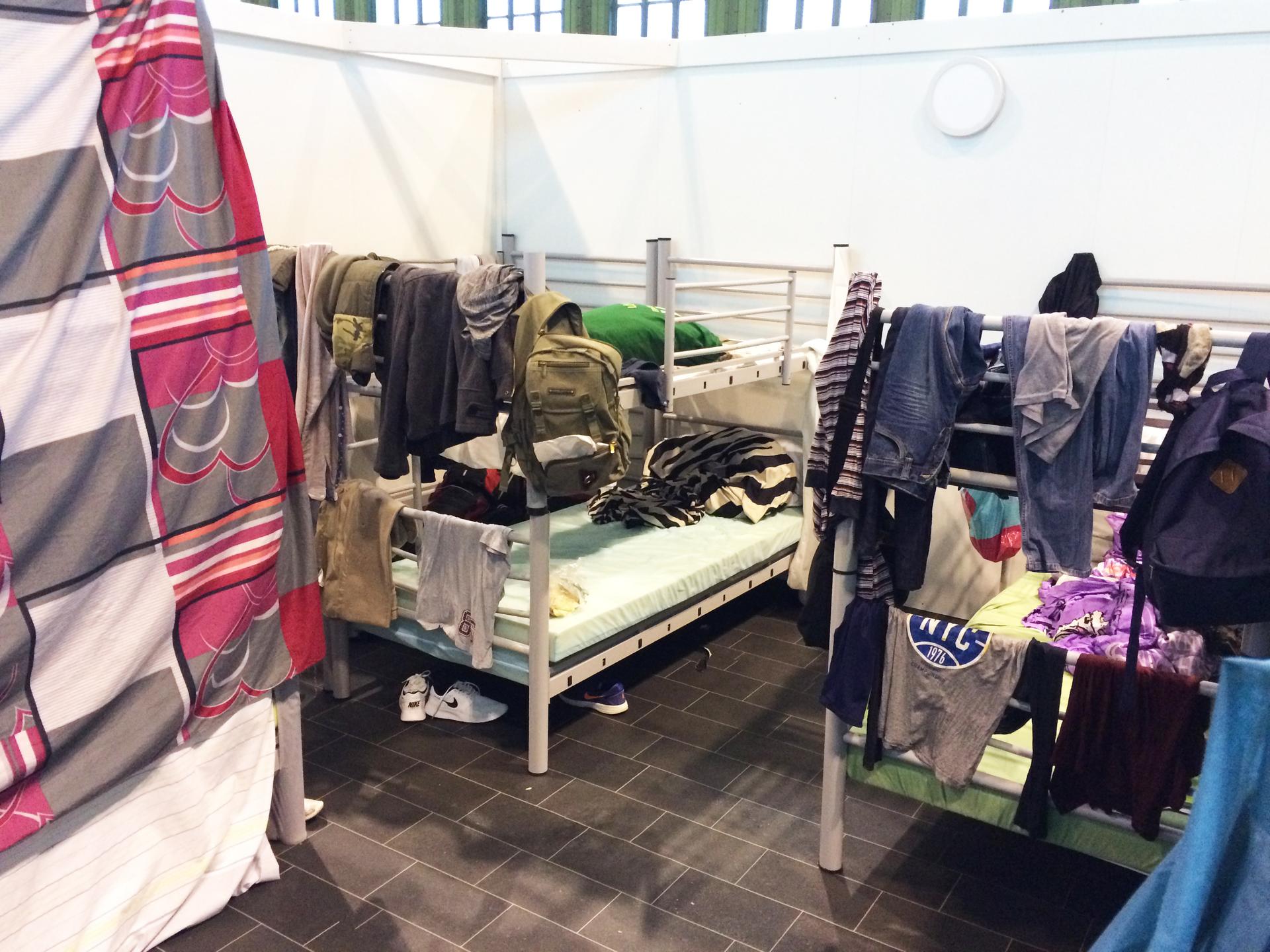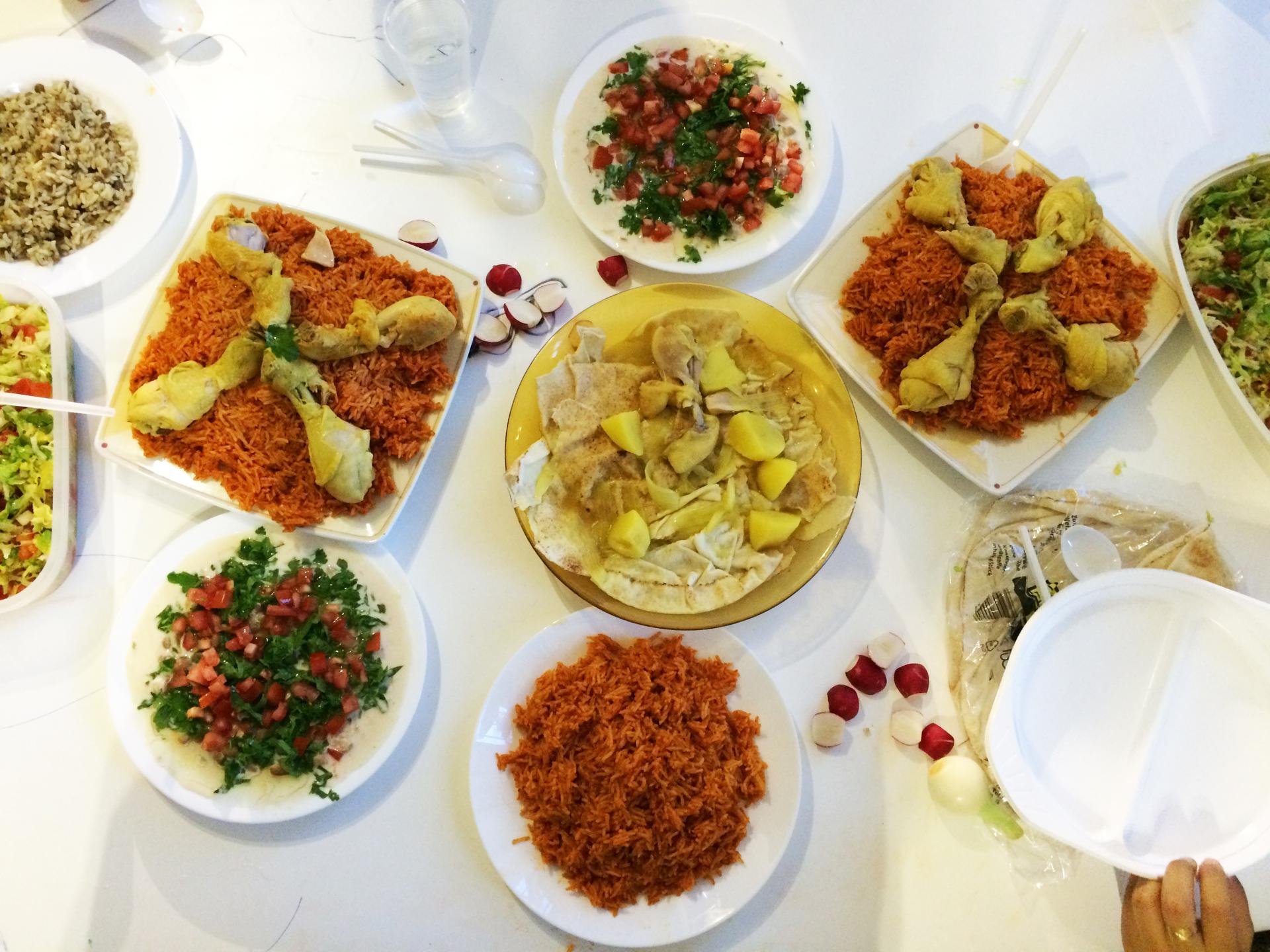An Iraqi family's Iftar feast at a refugee shelter in Berlin
Bushra's Iftar feast this year will be served up at the refugee shelter in an old military hangar at Templehof Airport in Berlin. She puts fresh chicken legs in a pot of simmering oil in her cubicle-like quarters.
"In Iraq, we call this dish Tashreeb Dijaj. The other one is Tum al-Ᾱḥmar," she says.
Families aren’t allowed to cook in the shelter, but they do it anyway. Bushra has created her own miniature kitchen using a top bunk as a makeshift pantry.
Dinner is provided in the cafeteria every night, but many of the Muslim families here can't bear the thought of lining up for institutional food for Iftar, the breaking of the Ramadan fast.
Omar, Bushra's husband, would much rather eat his wife’s cooking. (The names in this story were changed for security reasons.)
"The shelter’s food is not good," he says. "My wife makes much better food than theirs. One hundred times better. It’s very, very good — even the kids eat her food."
Once the chicken is done, Bushra starts the rice. She scoops out large spoonfuls of bright red chili paste, and mixes it into the pot on her portable stove.
She and her five young children arrived in Germany in January, just months after her husband made the long and dangerous trek here. She never thought she’d be living in these temporary conditions — sharing toilets and sleeping in cubicle-like spaces – for more than half a year.

"We were told that Germany helps families who have children," she says. "We thought the kids would be given a good shelter, so I never expected we’d end up in this kind of place."
Bushra is pregnant again, and social workers say newborns should not be living in Tempelhof. But, there’s no housing for the family yet, so for now, they’ll just have to keep waiting.
"We are not living in a place where we can feel comfortable," she says. "I feel like we’re living in the Stone Age. For us, it is the same as sleeping outside. There is no roof, and no door to close."
Despite the conditions in the shelter, they are still happy to be safe from the dangers back in Iraq.
"When I used to go to work, I didn’t know if I was going to see my wife or kids at the end of the day," says Omar. "There was a bombing every two days. There was a car exploding every two days. Suicide bombers, we’ve seen hell."
A year ago, when their house in Baghdad was hit by a rocket, they knew it was time to leave. Omar came first, and Bushra followed with the children a few months later.
It’s been tough in Germany so far, but they’re happy about their kids' education. The two oldest children are in school, and Bushra says they love it.
"When they saw other kids going to school, they were sad and asked why can’t we also go?' says Bushra. "So, I told them to wait until their names were called. They were really happy when they were finally able to go to school."
Today, the kids play in their room as Bushra prepares the feast. She sends her oldest, 8-year-old Ali, to fill up bottles of water at the nearest tap down the hall.
As sunset nears, her Syrian neighbor comes over to cut tomatoes and cilantro for a traditional Syrian dish made of salad, beans, and yogurt. It’s called foul bil leben.
Soon, the feast is ready, and the family plus their neighbors carry the food, extra plates and silverware into a community room. They carefully lay out all the dishes on a long table, and take photos.
At sundown, Omar recites a prayer.
And, with that, the family feast begins.
The story you just read is accessible and free to all because thousands of listeners and readers contribute to our nonprofit newsroom. We go deep to bring you the human-centered international reporting that you know you can trust. To do this work and to do it well, we rely on the support of our listeners. If you appreciated our coverage this year, if there was a story that made you pause or a song that moved you, would you consider making a gift to sustain our work through 2024 and beyond?
